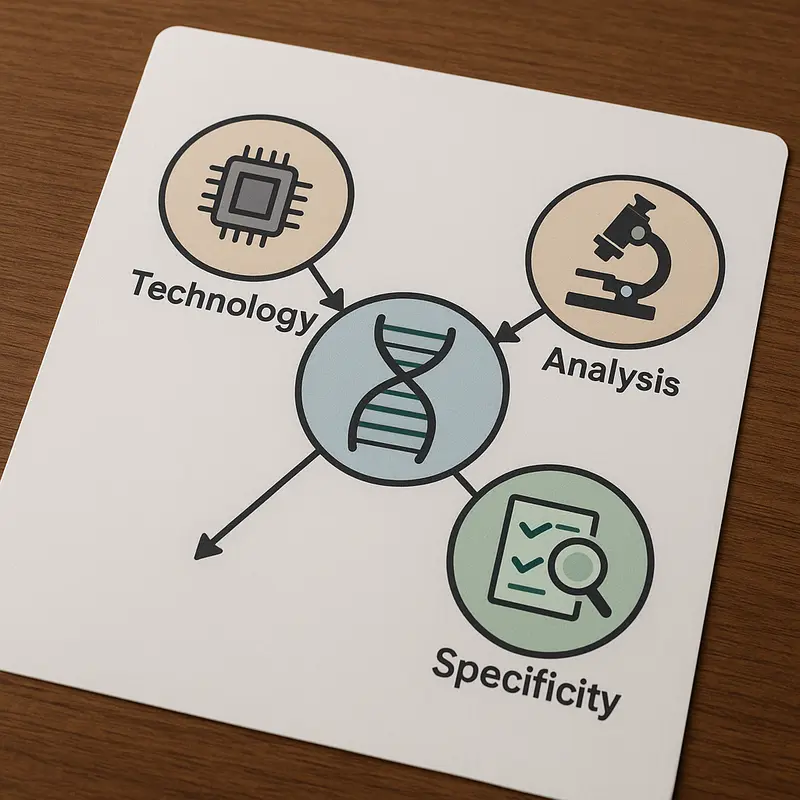DNA testing offers invaluable insights into ancestry and health, but prices vary widely. Whether you’re tracing your roots or assessing health risks, understanding cost factors is essential. This guide will explore the variation in DNA testing prices, factors influencing these costs, and how insurance might help manage expenses, ensuring you make informed and cost-effective decisions.
Decoding the Costs of DNA Testing: An In-depth Analysis

The landscape of DNA testing has evolved significantly, branching into various categories that cater to diverse needs from personal ancestry to complex medical diagnostics. This diversity is mirrored in the costs associated with these tests, making it an intriguing and sometimes daunting topic for potential users. Understanding the cost spectrum involves comprehending the specific purposes and methodologies behind each type of test.
Ancestry testing serves as the entry point for many into the world of DNA analysis. These tests, which typically cost between $50 and $200, provide a broad picture of one’s ethnic heritage. They analyze autosomal DNA to trace lineage through both maternal and paternal pathways. The popularity of such tests is fueled by the fascination with uncovering one’s roots, although the prices are kept relatively low due to the standardized nature of the analysis and the high volume of consumers.
Moving beyond ancestry, health-related genetic testing offers insights into an individual’s genetic predisposition to various conditions. Priced between $100 and $500, these tests delve deeper than simple ancestral data, requiring more sophisticated processing to interpret health-related information. Companies providing such tests often entice customers by linking genetic data with actionable health insights, though this increased complexity naturally raises the price.
Paternity testing, another prevalent category, involves verifying biological relationships, typically between fathers and children. Costs here vary widely, from $60 to $500, driven by whether the results need legal validation or are solely for personal knowledge. The legal assurance requires rigorous validation processes, which in turn increase the cost.
At the complex end of the spectrum, Whole Genome Sequencing (WGS) exemplifies comprehensive genetic testing. With costs ranging from $1,000 to $3,000, it commands a premium for offering complete genomic blueprints. Similarly, Exome Sequencing acts as a cost-sensitive alternative, focusing solely on protein-coding segments, priced between $400 and $1,500. Both methods are heralded for their detailed insights, demanded primarily in medical research and for resolving intricate genetic inquiries.
Other specialized tests, like carrier testing and Pre-implantation Genetic Testing (PGT), which can be essential for family planning, also reflect both the sophisticated techniques involved and the personal importance of the information gleaned. Carrier tests are relatively affordable, between $100 and $300, yet PGT rises steeply to $3,000 to $8,000 per IVF cycle. These tests are indicative of personal and medical decisions becoming intertwined with genomic knowledge.
Ultimately, the cost of DNA tests is as diverse as the tests themselves, shaped not only by the technological requirements but also by the intended use, the rigor of analysis, and market demand. For more economical solutions, individuals might explore potential discounts or special offers that occasionally surface in the market, such as those found at DNA ME coupon codes, which can make diving into one’s DNA a more accessible endeavor.
Decoding the Cost Matrix: Key Factors Influencing DNA Testing Prices

As DNA testing gains traction for ancestry exploration, health insights, and forensic applications, one intriguing aspect continues to captivate interest: the cost variability. The pricing of DNA tests is not arbitrary; instead, it weaves together a complex fabric of technological advancement, market dynamics, ethical considerations, and personal customization. Understanding these diverse elements helps demystify the seemingly unpredictable pricing landscape.
Technological Factors play a pivotal role in establishing the cost framework for DNA testing. The evolution from traditional Sanger sequencing to Next-Generation Sequencing (NGS) has seen a significant drop in prices due to enhanced efficiency. NGS’s ability to conduct massive parallel sequencing streamlines the process, eclipsing older, more laborious methods. Furthermore, cutting-edge equipment and infrastructure can initially seem costly, yet they empower laboratories to offer more affordable tests by improving efficiency. Automation and state-of-the-art software further trim down expenses by minimizing manual labor, enhancing the accuracy and speed of genetic data analysis.
On the flip side, Market Dynamics add a layer of complexity to pricing. The logistics of obtaining essential reagents and consumables, coupled with supply chain variability, can influence costs significantly. Competition among testing companies can also lead to dramatic price shifts. In competitive markets, providers often reduce prices to capture customer interest, while in stagnating or monopolistic environments, prices can remain rigidly high. Consumer demand notably sways costs as well; spikes in interest for certain tests—be it ancestry or health—can result in economies of scale, thus lowering prices.
Then there are the Regulatory and Ethical Considerations. Obtaining the necessary certifications and complying with international standards incur additional expenses, often transferring to the customer. Moreover, data privacy statutes such as GDPR or HIPAA necessitate robust security measures, adding another cost layer. In addition, Research and Development investment by genetics companies to advance testing methodologies can’t be overlooked. Such investments often translate into more precise and faster testing but may initially increase prices—although innovative breakthroughs can ultimately make DNA tests more affordable.
Finally, Customization and Test Complexity are influential factors. Tests aiming for high personalization or assessing rare genetic conditions have inherently higher costs due to the specialized attention required. More comprehensive analyses demand extensive labor in sequencing and interpreting genetic data, thereby justifying higher prices.
Understanding the interplay of these factors is crucial for consumers and providers alike, paving the way towards more transparent pricing and optimized testing options. As the field evolves, some of these costs might decrease, offering a delicate balance between affordability and advanced genetic insight.

The world of DNA testing can be likened to that of a double helix, a dynamic structure of intertwining factors that include insurance and financial considerations. As individuals seek out the invaluable insights that genetic testing can provide, understanding the financial landscape becomes crucial. This process often begins with exploring insurance coverage.
Many health insurance plans recognize the importance of DNA tests when they serve a medically necessary purpose, such as prenatal testing or diagnosing genetic disorders. For insurance coverage, it is imperative that the test be justified by a healthcare professional, potentially requiring pre-authorization. While coverage criteria can vary significantly across different insurers, having a compelling reason backed by medical necessity often increases the likelihood of insurance approval.
Out-of-Pocket Expenses
Without insurance, the financial burden of DNA testing can be substantial. Costs fluctuate based on the complexity of the test, with prices ranging from a few hundred dollars for basic tests to several thousand dollars for extensive genetic analyses. This financial consideration becomes even more significant with specialized tests, which are typically less likely to be covered by insurance unless explicitly medically necessary. Additionally, genetic counseling, which is often recommended alongside testing to interpret results, can further elevate expenses.
To mitigate these costs, some test providers offer financial assistance or flexible payment plans. These programs aim to improve accessibility, ensuring that important genetic information is not limited by economic constraints. Non-profit organizations also play a vital role, sometimes providing funding or subsidies for individuals in need of genetic testing for hereditary conditions.
Legislative and Insurance Dynamics
Legislation such as the Genetic Information Nondiscrimination Act (GINA) provides important protections, preventing DNA test results from affecting health insurance coverage and employment opportunities. It is crucial for consumers to grasp these protections while noting that other types of insurance, like life and long-term care, may not be similarly safeguarded. Here, genetic information could potentially influence premiums or coverage decisions.
Selecting the right DNA testing provider requires careful navigation, balancing costs with insurance implications. Engaging with a healthcare professional to understand the test’s relevance, benefits, and limitations can offer valuable insights. This strategic approach ensures that informed financial and healthcare decisions are made, allowing individuals to unlock the profound insights offered by the miracle of modern genetic science.
Final thoughts
Understanding DNA testing costs involves recognizing the variety of tests available and the factors that influence prices. By being informed, you can make savvy choices that suit your needs and budget. Consider potential insurance coverage to further mitigate expenses, ensuring health and curiosity don’t break the bank.
Looking for the best deals without the hassle? Discover top-rated product reviews, price drops, and exclusive offers handpicked by AllStealDeals — your shortcut to smarter shopping today!
Learn more: https://allstealdeals.com/
About us
AllStealDeals is your ultimate destination for uncovering unbeatable online deals, expert reviews, and top lists across a wide range of products and services. From tech gadgets and software tools to fashion, home essentials, and AI apps, our curated content helps savvy shoppers make informed decisions while saving big. We do the research so you don’t have to — comparing features, analyzing pricing, and spotlighting the hottest discounts on the web. Whether you’re hunting for daily steals or planning your next big buy, AllStealDeals delivers value you can trust. Start exploring today and never miss a great deal again.
